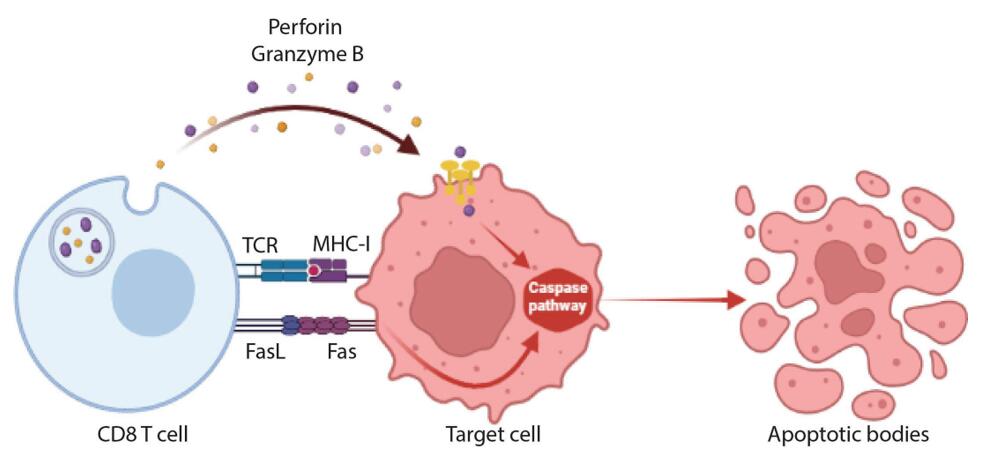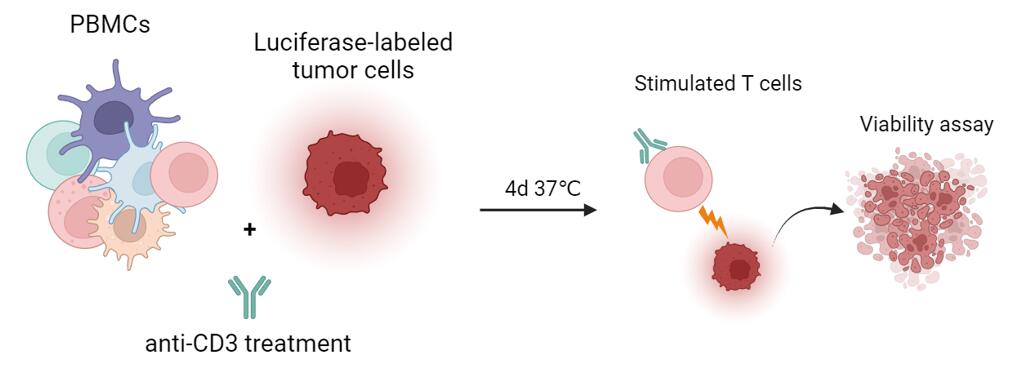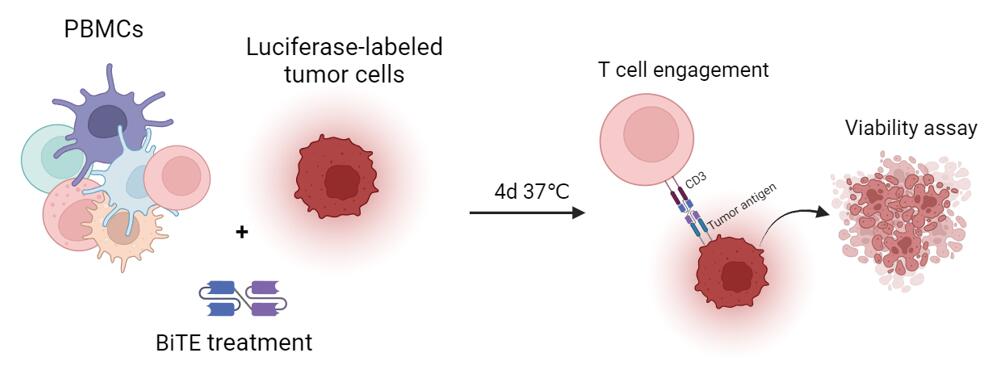T cell-mediated tumor killing, often referred to as cytotoxic T lymphocyte (CTL) activity, is a critical component of the immune response against cancer. T cells are a type of white blood cell that plays a central role in the adaptive immune system.
Cytotoxic T lymphocytes (CTLs) are a subset of T cells that are specifically activated by the recognition of tumor antigens presented on the surface of cancer cells. CTLs have receptors called T cell receptors (TCRs) that can recognize specific antigens associated with cancer. Once activated, CTLs release cytotoxic molecules like perforin and granzymes, which can directly kill cancer cells by inducing cell death.
 Figure 1. Cytotoxic functions of CD8 T cells.[1]
Figure 1. Cytotoxic functions of CD8 T cells.[1]
There are several strategies employed by immunotherapies to enhance the killing abilities of T cells. These strategies aim to activate and redirect T cells towards tumor cells, allowing them to effectively eliminate cancer cells. Some of the key strategies include:
Cytotoxic T cells play a crucial role in recognizing and eliminating cancer cells. Innovative therapies aim to enhance T cell activation, boost effector function, and mitigate inhibitory mechanisms. Additionally, strategies are being developed to assist T cells in reaching their target cells more effectively. Creative Bioarray's T Cell-Mediated Tumor Killing assay provides a reliable and accurate method for evaluating the anticancer function of T cells.


Reference:
1. Al Moussawy M, Abdelsamed HA. Non-cytotoxic functions of CD8 T cells: "repentance of a serial killer". Front Immunol. 2022;13:1001129. Published 2022 Sep 12. doi:10.3389/fimmu.2022.1001129
Online Inquiry